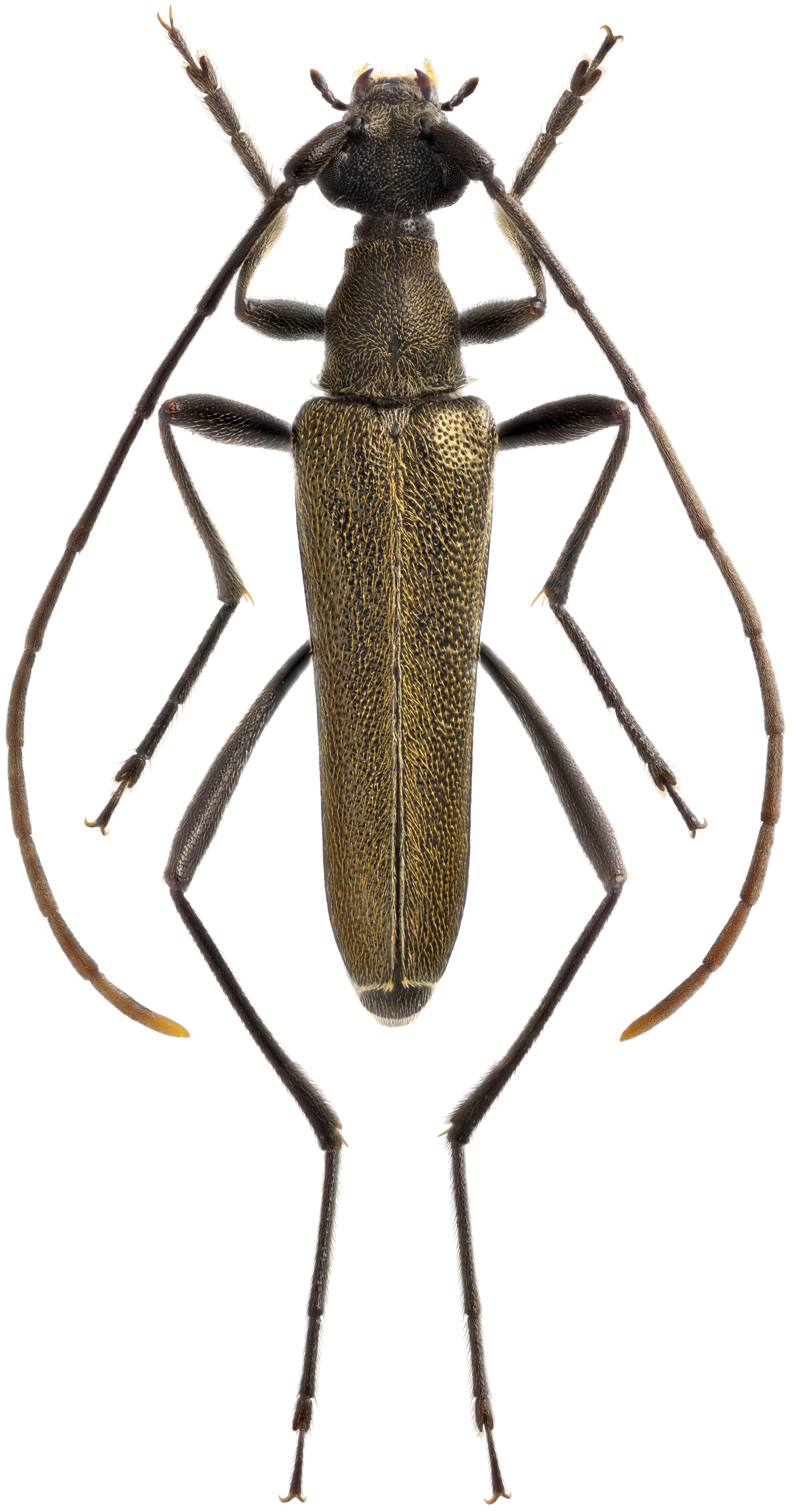Strangalomorpha tenuis, a nominative subspecies occuring in North-East Asia (Russian Far East, Korea, North China, Japan), has been described from East Siberia (Amur) by
Semyon M. Solsky in 1873 [▽]. Larvae of the species develop and pupate in the decaying wood of deciduous trees (Acer, Corylus, Juglans, Alnus, Salix, Prunus,
Quercus, Ulmus, Betula, etc.). Life cycle two years, pupation in spring after the second overwintering. Adults, active in June - July, are diurnal and anthophilous [✧].
| Body length: | ♂♂ 7.4 - 14.0 mm / ♀♀ 10.0 - 15.0 mm |
| Life cycle: | 2 years |
| Adults in: | June - July |
| Host plant: | polyphagous in deciduous trees |
| Distribution: | Russian Far East, Korea, North China, Japan (Tsushima Island only) |
The depicted male beetle was collected at Listvennichnaya (Лиственничная) river under Kamenystyi (Каменистый) creek estuary
(N43°35′47″ E131°21′53″; 400 m a.s.l, Borisovskoye Plateau, South of Primorsky krai, Far Eastern Federal District, Russia)
on May 30, 2019.
Collected by Kirill V. Makarov
[▽]
Semyon M. Solsky in Blessig C.:
Zur Kenntniss der Käferfauna Süd-Ost-Sibiriens insbesondere des Amur-Landes. Longicornia.
Horae Societatis Entomologicae Rossicae, St. Petersbourg 9 (3) [1872]: 193-260, 1873.
[download  ]
]
[✧]
Danilevsky M.L.:
Longicorn beetles (Coleoptera, Cerambycoidea) of Russia and adjacent countries. Part 1.
Higher School Consulting, Moscow, 550pp [page 229], 2014.
[download  ]
]


